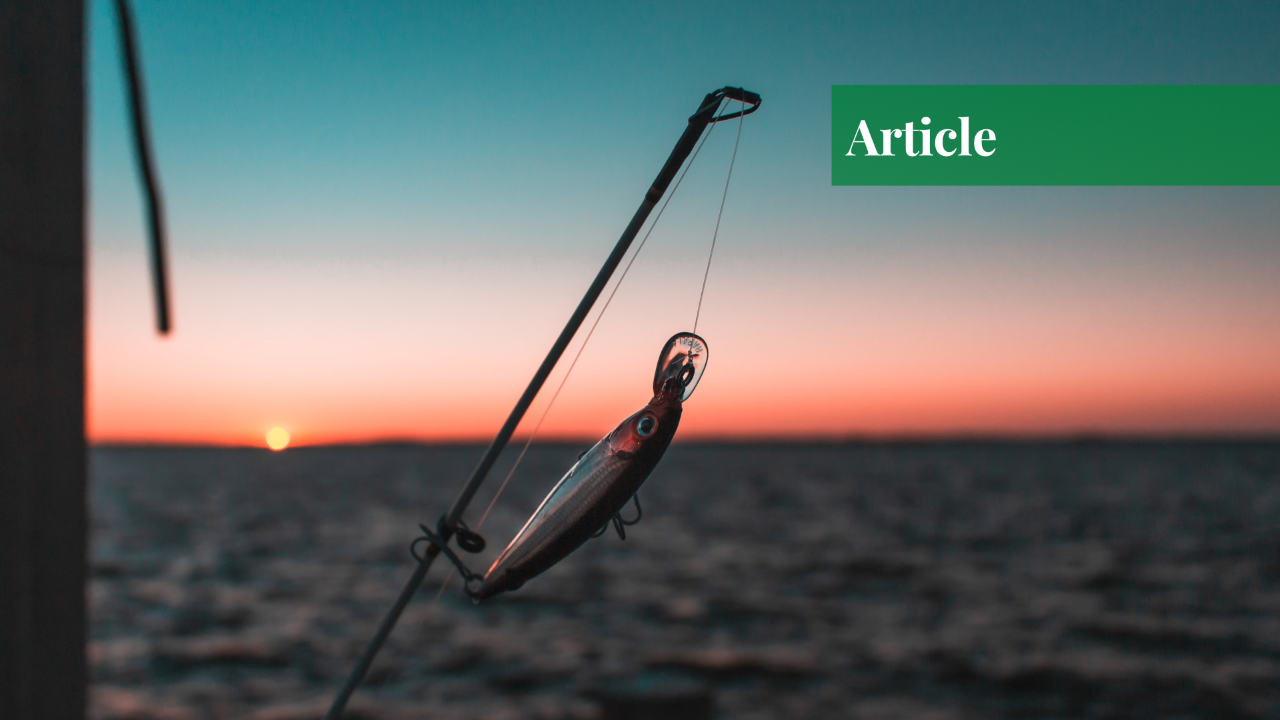Ms Zuha Tiwana is a psychologist, freelancer, and analyst. She can be reached at [email protected]
Introduction
The world’s ecosystems largely depend on the oceans and the life in oceans. Some malicious elements in the shadow of the oceans of the world can devastate this ecosystem completely. The most common and global threat to the oceans in recent times is “Illegal, unreported and unregulated” fishing. It is commonly abbreviated as IUU fishing across the globe.
The dangerous effect of IUU fishing is the degradation of food stocks, undermining the fragile fishing economies to a larger extent. The possible solution to the issue can be a global effort in eradicating the world’s shared prosperity.
Defining IUU Fishing
When fishing is done in contravention of the regulations and laws applicable to the marine systems, it is termed Illegal fishing. The unreported and unregulated activities show the failure to report or to misreport to wrong authorities — such as a non-approved vessel that is not regulated by a state’s flagship. It is common in the areas where no stringent attention has been given to fishing and its impacts on human life.
Being a global issue, the problem has its roots in the South China Sea, in Western African coasts, the Indian Ocean, around the waters in Antarctica and overall Oceania. According to the IUU Fishing Index provided by Global Initiative Against Transnational Organized Crimes, the four out of the five countries worst in the response, vulnerability and prevalence of IUU belong to Southeast Asia. Interestingly, China is at the top of the list followed by Russia at number four.
The Case in Ecuador’s Galapagos Islands
In 2020, predatory high seas fishing had been observed to be conducted by more than three hundred and fifty Chinese vessels near Ecuador’s Galapagos Islands which is a renowned Heritage site. UN Educational, Scientific and Cultural Organization (UNESCO) has also shown concerns for the eradication of malicious fishing in the oceans.
In this example, the fleet was targeting marine life. The local people of Ecuador became aware of the danger and the threat of the depletion of the marine life, the population of the fish and hurting the sentiments and wages of the fishermen and hence called for help, prompting the US Coast Guard to patrol the area straight away by the deployment of a national security cutter.
A Global Maritime Security Threat
Fisheries not only help the fishermen earn their living but are also a great source of food security. In 2020, the United States Coast Guard declared IUU fishing as a leading global maritime security threat at the present time. Reportedly, every one in five fish caught by IUU is damaging marine life and marine security as a whole.
IUU fishing has been responsible for over $23 billion loss for the fishing industry per annum. Not surprisingly, the poorest and underdeveloped coastal countries that depend on fisheries for their economic growth and livelihoods will suffer the most.
Fish makes up for the protein requirements of more than forty per cent of the world’s population. The threatening levels of Illegal, Unreported and Unregulated fishing can decimate the food security, economy, fish industry and the ability of most countries to feed their people.
The already fragile economies of the coastal countries can fall into shambles if the same is continued, as these countries don’t have the resources to patrol their Exclusive Economic Zones (EEZs) to make their coasts safer.
The Other Effects of IUU Fishing
Human trafficking, forced labor, illegal activities, and unlawful vessels have increased the frequency of IUU fishing. According to the Interpol report,“ Fishing vessels are often used to smuggle people, drugs, and weapons, as well as to carry out acts of piracy and terrorism. IUU fishing activities are highly mobile, increasingly sophisticated, and sometimes conducted with logistical and security support from fishers’ flag states.”
However, such actions tend to undermine the global fish industry, the organizations and regimes that deal in fish food, skin and other pharmaceutical products. Some international bodies include UNESCO and the UN Food and Agriculture Organization’s Fisheries Division.
Role of the Coastal Countries.
The major targets have been the poor coastal countries that can’t even defend themselves. The flag states vessels can use their authority to check IUU fishing. The flag states must use their power to deter Illegal, Unreported and Unregulated Fishing in their connected areas. In some areas, the flag states launch their own IUU fishing activities to gain economic benefits over other states—and it must be stopped.
According to the Agreement on Port State Measures, in 2016, a treaty under the UN was enforced being “the first binding international agreement that specifically targets IUU fishing. Approximately one-third of the world’s countries are party to it, but UN members should collectively work to increase that number.” The port areas, coastal areas and all the countries linked with the waters must play their part in curbing IUU fishing to its full ends and save marine life and the fish industry of the world.
Global Solutions
A liberal approach and a cooperative mindset will help in combating this global threat. The role of regional maritime bodies, non-governmental organizations, and international bodies are necessary to nip the evil in the bud. The positive roles of different elements like the Interpol’s Project Scale, Pew Charitable Trusts, Overseas Ocean Monitor, and the Global Fishing Watch’s satellite-based platforms have been playing their due role in combating Illegal, Unreported and Unregulated fishing across the globe.
Conclusion
Global efforts are needed in order to fight the scourge of IUU fishing at all levels. This will help in retaining marine environments, food chains, ocean life, and fish industry all over the world. Moreover, the maritime nations must take up a stand to protect their waters and their resources because without a global involvement and a continuous effort, the threat of illegal, unreported and unregulated fishing will be solved in the Kingdom of Morpheus.
If you want to submit your articles and/or research papers, please check the Submissions page.
The views and opinions expressed in this article/paper are the author’s own and do not necessarily reflect the editorial position of Paradigm Shift.



















